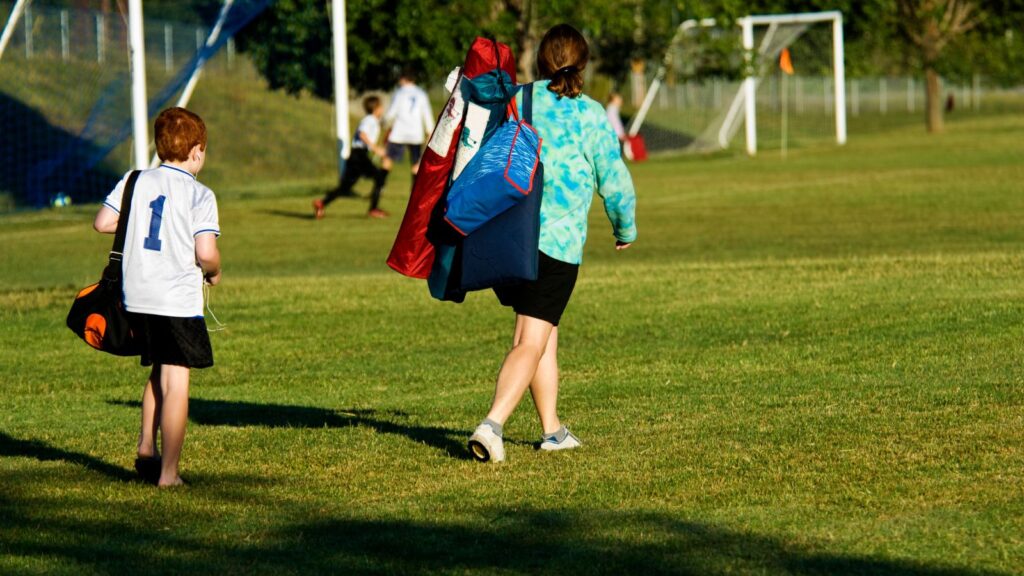You’ve likely heard the term “soccer mom” thrown around, especially in the context of suburban life. But what does this phrase truly mean? Is it just about shuttling kids to and from soccer practice, or does it imply something more?
In this article, we’ll delve into the origins, connotations, and evolution of the term “soccer mom”. We’ll explore how it’s become a cultural symbol, representing a specific demographic and lifestyle. We’ll also discuss its broader implications in society and politics. So, whether you’re a soccer mom yourself, or simply curious about this ubiquitous term, stay tuned for a fascinating exploration.
Soccer Mom Meaning
Origin of the Term
First notable usage of the term “Soccer Mom” dates back to the mid-1980s. It emerged in the United States as an identifier for middle-class suburban women, extensively involved in their children’s activities—predominantly youth soccer. The context in which it came into being illuminates a demographic group that was seen devoting significant time shuttling children to and from various extracurricular activities.

Over the years, the definition of “Soccer Mom” has evolved, and the term has taken on cultural, social, and political nuances. It no longer solely refers to mothers driving their children to soccer practices. Instead, it illustrates a broader thematic role as a symbol of evolved middle-class suburban lifestyle and motherhood norms. “Soccer Mom” now stands for independent, concerned, and politically active suburban women who juggle multiple responsibilities.
Remarkably, the term’s political significance has grown, exemplified in its use to represent a swing voting group. Politicians extensively court this demographic group, acknowledging their significant role in the political landscape. Also, the term’s cultural presence remains strong, often portrayed in media as well-to-do suburban mothers driving minivans and advocating for their children’s successes.
The evolution of “Soccer Mom” signifies changing societal norms, offering a lens into the dynamics of the modern American suburbia.
Characteristics of a Soccer Mom
The qualities that epitomize a ‘Soccer Mom’, extend beyond the basic role of ferrying children to soccer matches. Using this premise, the following categories detail critical elements defining a Soccer Mom’s persona.
A Soccer Mom juggles many responsibilities that may vary from homemaking tasks to fulfilling occupational obligations and, of course, parenting duties. They ensure their children excel in co-curricular activities, often indicated by the children’s involvement in soccer practices. Balancing the various roles, a Soccer Mom epitomizes the modern multitasking individual. For instance, Suzanne, a middle-class suburban mom, manages her job, takes care of household chores, and ensures her kids attend all their soccer practices.
Many a time, the term ‘Soccer Mom’ doesn’t merely refer to middle-class suburban women. It also embodies a socio-cultural archetype that wields significant influence on various societal aspects, particularly in shaping cultural values and impacting political trends. Their role extends beyond the sidelines of soccer fields, becoming integral cultural influencers, advocating for their families and communities. It is evident during elections when they emerge as a crucial demographic, swinging votes subtly, yet significantly.
The Soccer Mom in Modern Media
Portrayals in Film and Television
Soccer Moms, key figures in the suburban American landscape, frequently make appearances in both films and television shows. They’re often portrayed as proactive, resourceful women who manage the chaos of their children’s busy schedules, contribute to community welfare, and still find time to engage in personal pursuits. For instance, Frankie Heck of the television show “The Middle” exemplifies the quintessential Soccer Mom.

In film, Helen Parr of Pixar’s “The Incredibles” franchise mirrors the same Soccer Mom persona, albeit with superpowers. Similarly, the character of Leigh Anne Tuohy from “The Blind Side” embodies a proactive Soccer Mom who not only supports her children at their games but also helps a less fortunate youth realize his full potential.
These representations echo the reality of the modern-day Soccer Mom – a strong woman who is influential in her family unit, active in her community, and far surpasses the traditional narrative of a Soccer Mom focused on packed lunches and carpool schedules.




